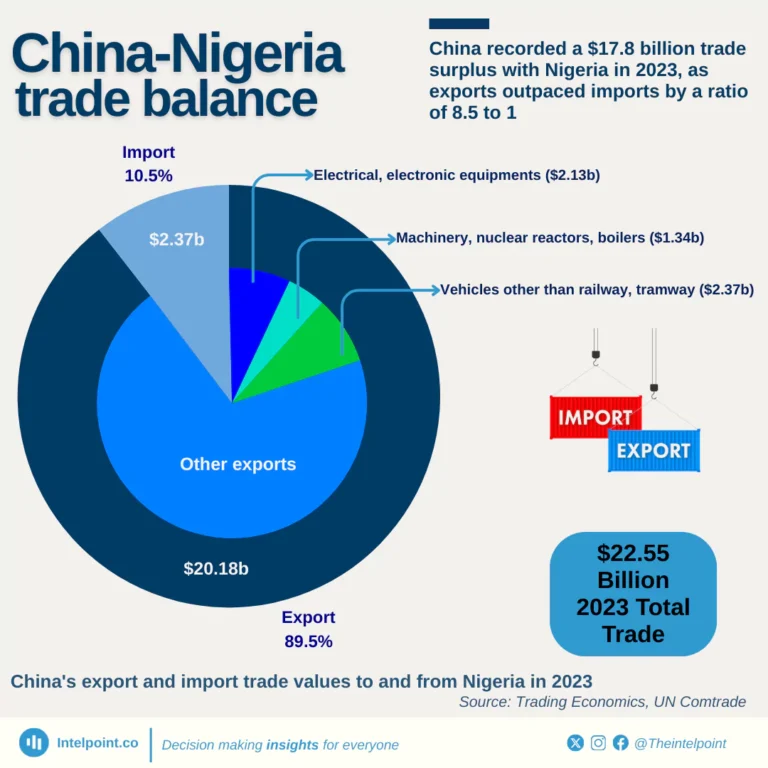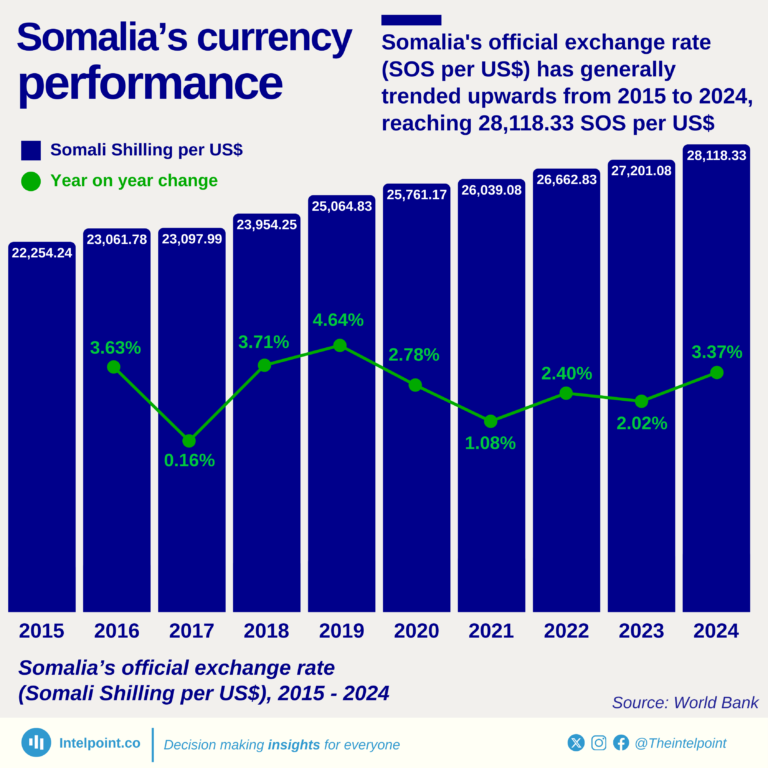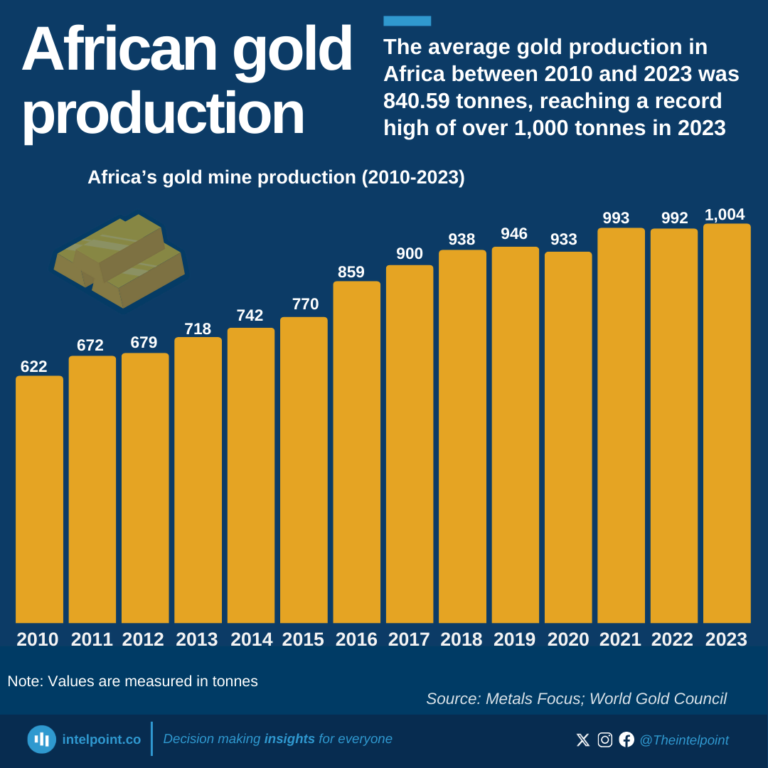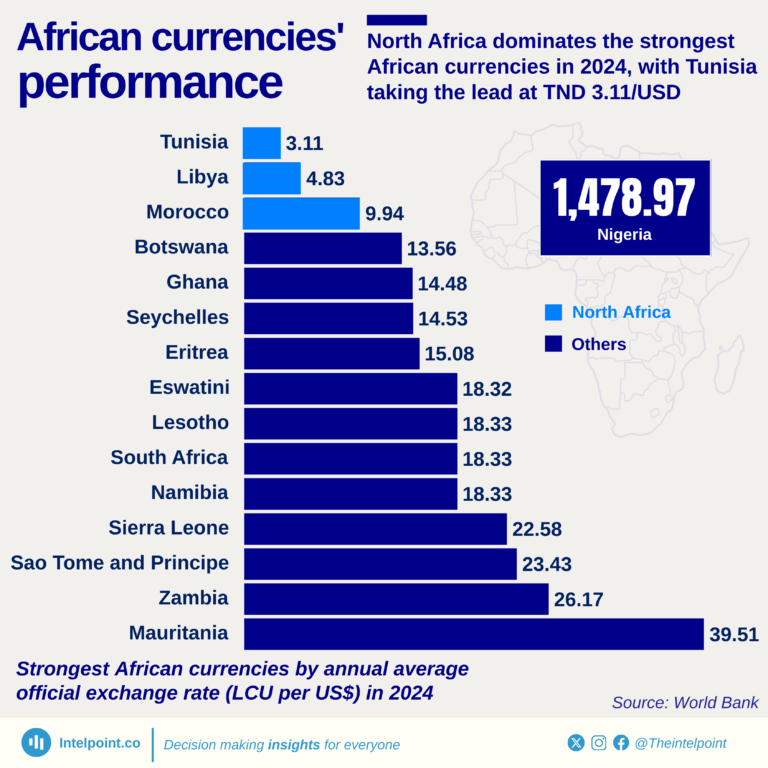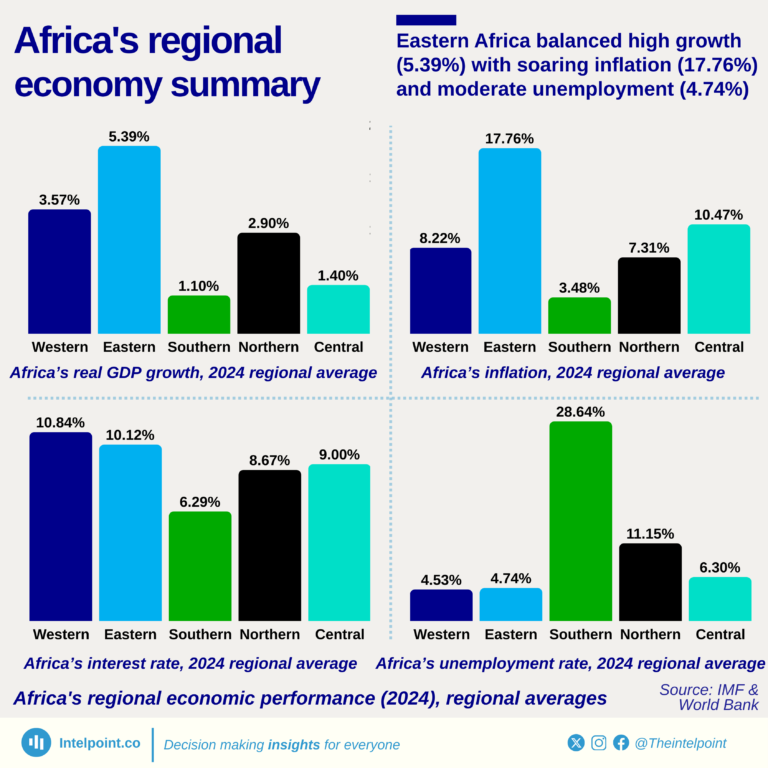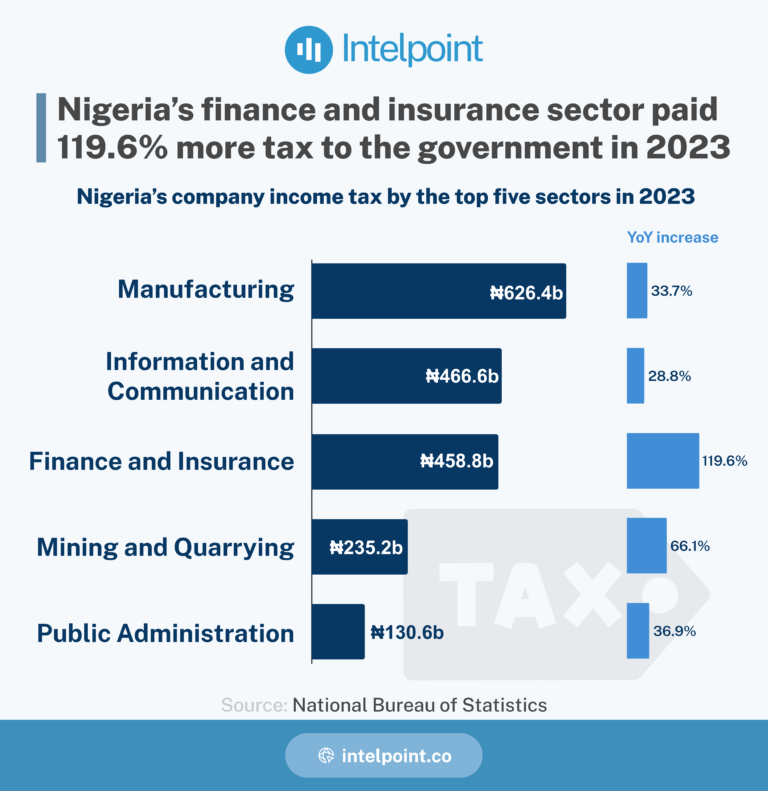
In 2023, businesses in Nigeria's finance and insurance sector paid ₦458.8 billion as taxes to the government, 119.6% more than in 2022.
Those in the manufacturing sector also increased their payments and remain the top tax-paying sector in the country.
Here are the top five sectors where businesses paid the most tax in 2023.
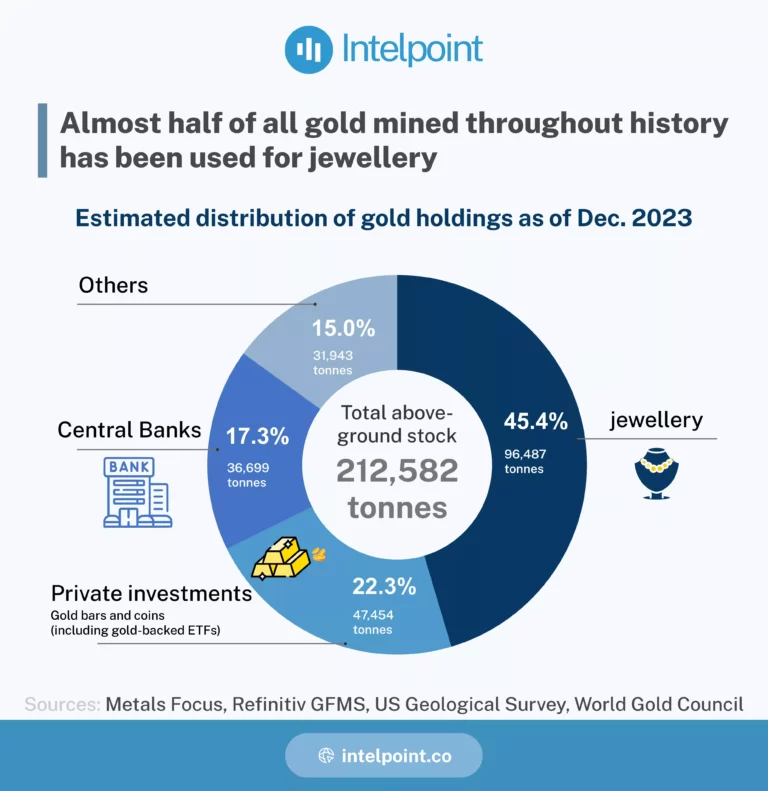
According to recent data, there were approximately 96,487 tonnes of gold jewellery in the world in Dec. 2023, accounting for 45% of the total estimated amount of gold (212,582 tonnes) mined throughout history. Here is an estimated distribution of gold holdings as of Dec. 2023.
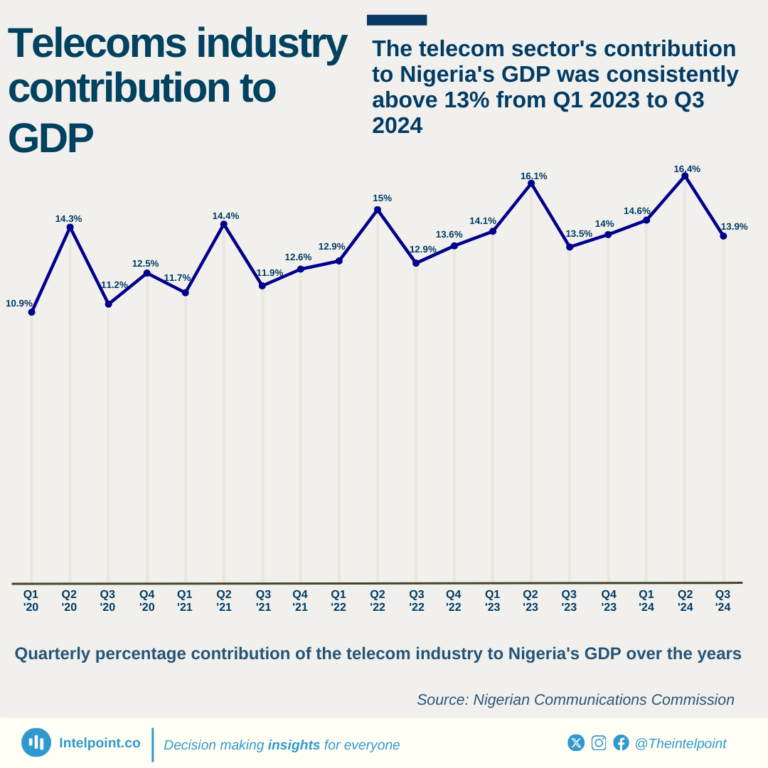
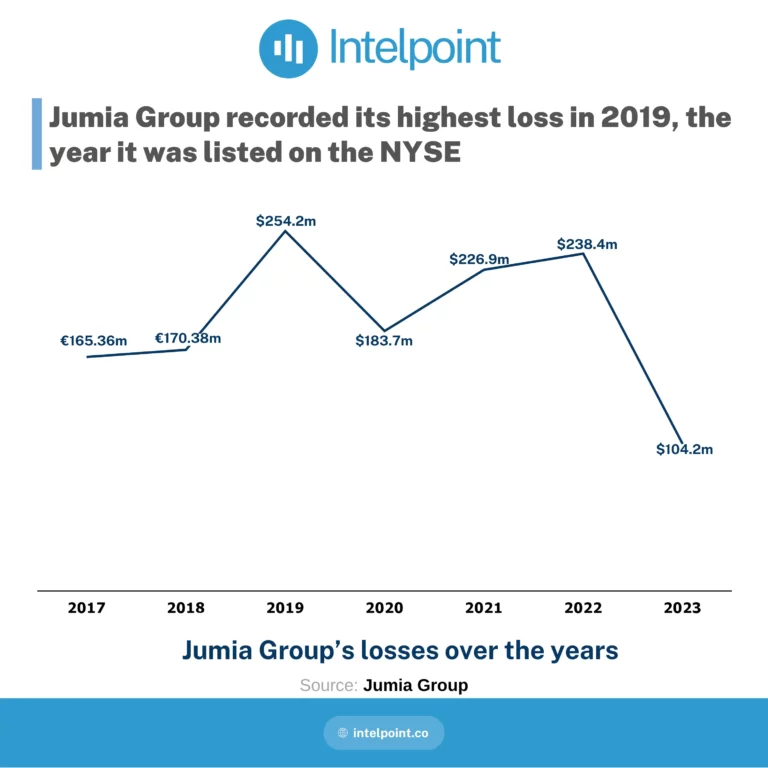
Jumia Group has recorded $1b in losses since listing on the New York Stock Exchange in 2019. The eCommerce giant also recorded its highest yearly loss in 2019. In recent years, Jumia Group has shut down some of its businesses across Africa, thus recording its lowest loss over seven years in 2023.
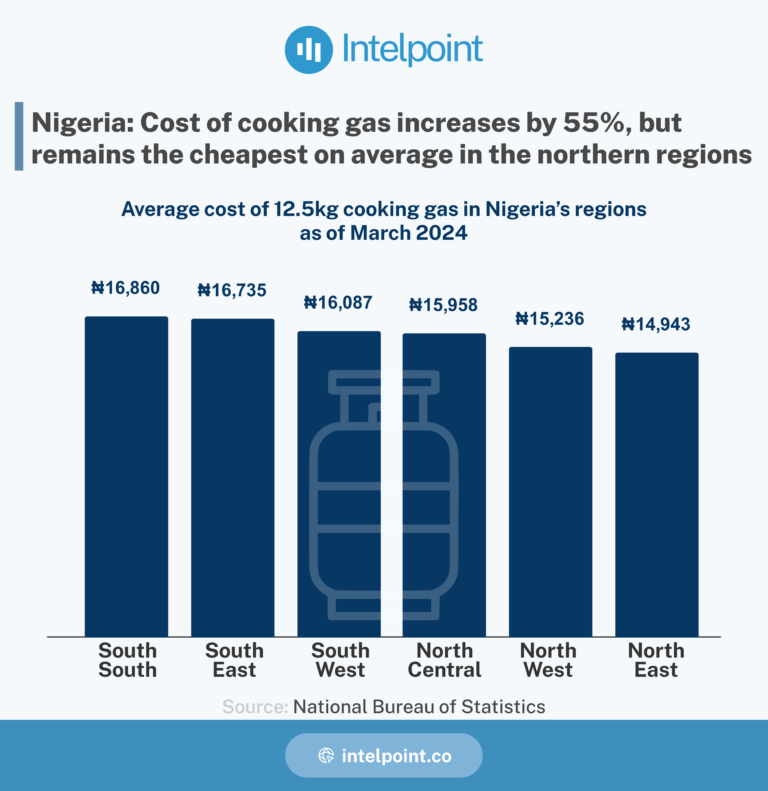
The cost of cooking gas nationwide increased from an average of ₦10.3k in March 2023 to nearly ₦16k in March 2024.
However, the northern regions had the most affordable prices. The North East had the lowest average price of ₦14.9k for a 12.5kg cylinder.
In Katsina, the average price for 12.5kg of cooking gas was ₦12,400 as of March 2024, the lowest in the country.
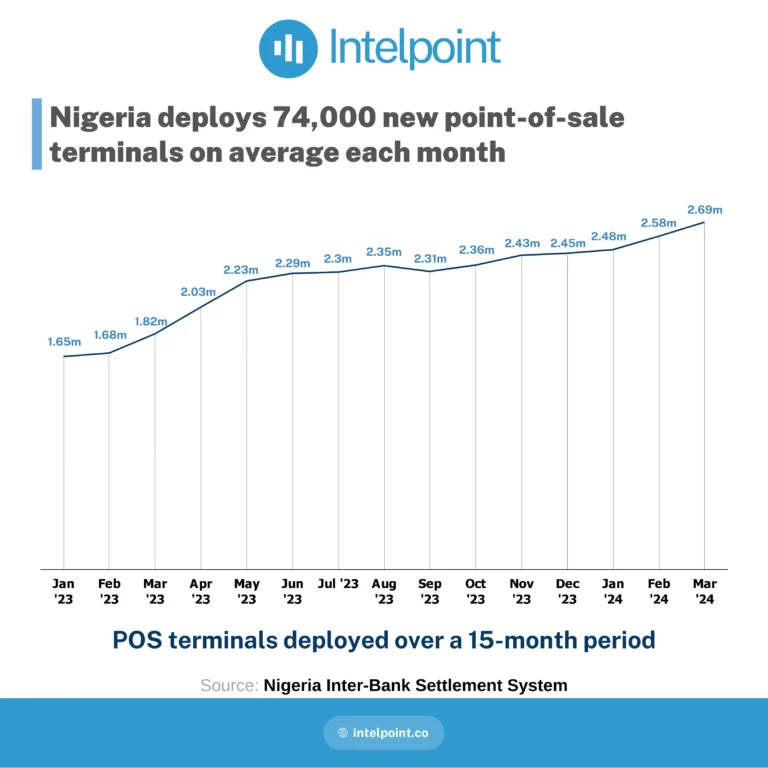
Over the years, merchants on agency banking platforms have played an important role in bringing the banking system closer to people. They also played a key role during Nigeria's cash crunch in Q1 2023. Despite their importance, there have been reports of people using them to commit fraud, prompting the government's recent decision to have all POS agents registered with the Corporate Affairs Commission. As of March 2024, 2.69 million POS terminals had been deployed, including those used as payment options.

In 2023, 1.17 billion smartphones were shipped globally. Samsung and Apple maintained their stronghold on the smartphone market, collectively accounting for 38%, with each brand capturing 19%.
Xiaomi maintained a 12% share after peaking at 14% in 2021. Apple's market share shows a gradual increase from 2020, reaching 19% in 2022 and 2023.
